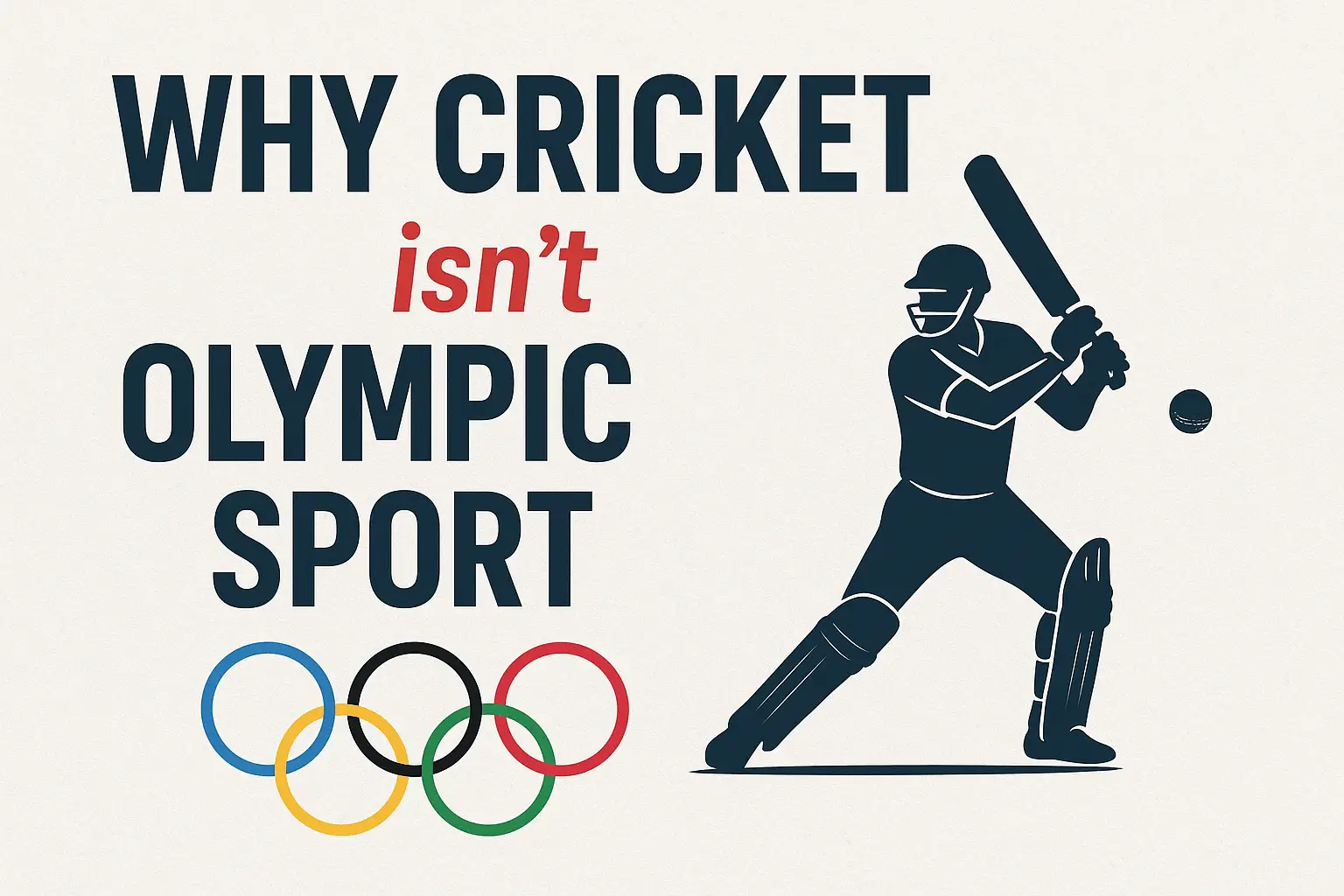Why Cricket Isn’t Olympic Sport: The Real Reasons Behind Its Long Absence
Cricket is one of the most loved sports in the world, followed by billions of fans in Asia, Australia, Europe and parts of Africa. From the electric atmosphere of the IPL to the historical charm of Test cricket, the game is massive. Yet cricket isn’t an Olympic sport—a question that puzzles many fans worldwide.
So why has cricket been missing from the biggest international sporting event for over a century? This detailed post explains the real reasons behind it, including structural issues, global participation gaps, scheduling conflicts and governance challenges.
A Brief History: Cricket’s Short Olympic Journey
Surprisingly, cricket did appear in the Olympics once—back in 1900 at the Paris Games. Only two teams participated (Great Britain and France), and the match was unorganised and low key. After that, the sport disappeared from the Olympic schedule and has never been back since.
For over 120 years the question has been asked: Why hasn’t cricket come back?
Here are the reasons.
1. Lack of Global Reach
One of the biggest requirement for any Olympic sport is global presence. A sport must be played competitively by a wide range of countries across multiple continents.
Cricket, though very popular in countries like India, Pakistan, England, Australia, South Africa, Bangladesh, New Zealand, Sri Lanka and the Caribbean, still lacks mainstream presence in:
- North America
- Eastern Europe
- Most of South America
- East Asia
Only around 12-15 nations play cricket at an elite international level which is far below the Olympic benchmark.
This limited spread makes it difficult for the International Olympic Committee (IOC) to justify cricket.
2. Too Much Time Required for the Matches
Traditional cricket formats are long:
- Test cricket lasts 5 days.
- ODIs take around 8 hours.
The Olympics however require compact formats that fit into a 16-18 day schedule.
While T20 cricket (about 3 hours) is suitable, it wasn’t widely adopted until the last two decades. By the time T20 gained popularity the Olympic schedule was already full.
3. Scheduling Conflicts With Major Cricket Tournaments
Cricket’s global calendar is extremely crowded due to:
- ICC tournaments
- Test series* Domestic leagues like IPL, BBL, PSL, BPL, CPL, The Hundred
The IPL itself runs for almost two months and has top international players from almost every major cricketing nation.
Finding a window for the Olympics would require all boards, especially BCCI, to make huge scheduling sacrifices—something that has been impossible to do.
4. BCCI and Governance Issues
Cricket’s top governing body, BCCI, is not a member of Indian Olympic Association (IOA).
For many years BCCI was reluctant to join the Olympic movement because:
- They didn’t want government interference.
- They wanted complete control over financial and administrative matters.
- There were issues with anti-doping rules under WADA.
Since India contributes the largest audience and revenue to world cricket, any Olympic participation required BCCI’s full consent. Without it, ICC couldn’t proceed.
5. Infrastructure and Team Size Challenges
Olympics aim to minimize athletes, facilities and costs. Cricket however requires:
- A big ground
- A large team (15+ members)
- A multi hour match schedule
- Multiple stadiums if multiple matches are happening simultaneously
Not all Olympic host cities have cricket stadiums, making the sport logistically challenging.
6. Cricket for New Audiences
Cricket is rich in rules, formats and strategies. But for countries who are new to it, the sport can be complicated.
Sports added to the Olympics usually have:
- Simple rules
- Quick gameplay
- Universal appeal
Cricket’s long learning curve may have been another reason for IOC.
Is Cricket coming to Olympics?
Yes—there is progress. Cricket has been approved for 2028 Los Angeles Olympics, likely in T20 format.
Reasons for this change:
- Rapid growth of T20 leagues worldwide
- Increasing popularity of cricket in USA
- Big audience boost for Olympics
- BCCI showing more openness to Olympic participation
This is a big step towards globalizing the sport.
Conclusion
While cricket has a massive fan base, it was absent from Olympics for over a century because:
- Limited global reach
- Long match formats
- Scheduling conflicts
- Governance issues
- Infrastructure and logistic challenges
But with T20 cricket becoming popular globally and interest rising, cricket is finally coming to the Olympic stage. 2028 might be the beginning of a new era where cricket gets the global attention it truly deserves.








